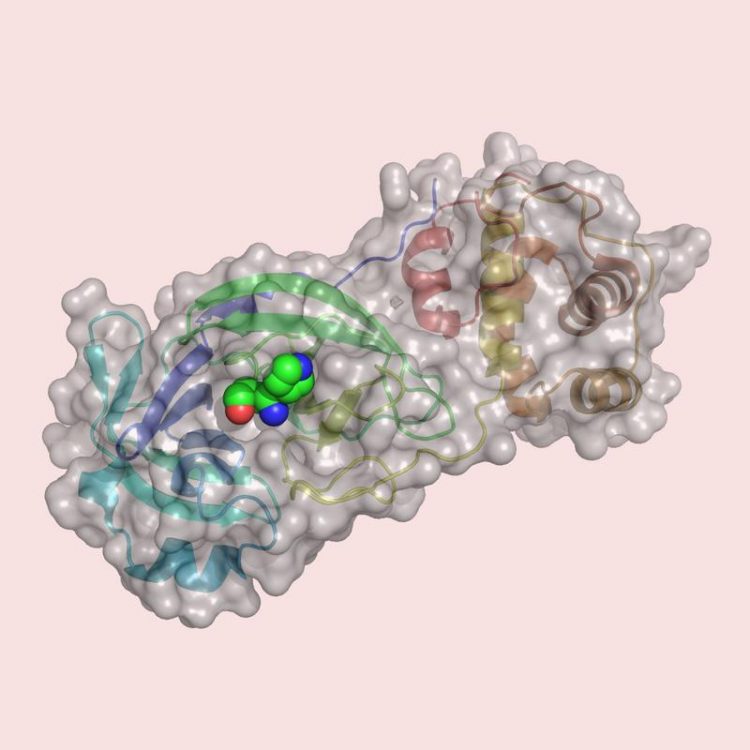Virtual screening for active substances against the coronavirus

Researchers have tested more than 680 million substances on the computer to virtually test one of the virus’ important proteins, the central protease. Picture: University of Basel, Computational Pharmacy
Over the past few weeks, the research group in the Department of Pharmaceutical Sciences, led by Professor Markus Lill, has been working with computer-aided methods to identify possible new drugs to combat the current coronavirus outbreak and similar epidemics in the future.
In the process, the researchers have tested, albeit virtually, more than 680 substances on one of the virus’s key proteins: its central protease.
This “virtual screening” has already identified several interesting substances that have the potential to inhibit the virus’s critical enzyme – and thus its further multiplication.
“Even if the complete development of a drug to fight this particular coronavirus is likely to exceed the duration of the current epidemic, it is important to develop drugs for future coronaviruses. This will make it possible to nip health crises like this one in the bud in the future,” says Lill.
Test results made public
In light of the current crisis, the group took an unusual decision by immediately making the test results publicly available in the form of an open-source preprint. The publication was consulted more than 3,000 times during the first 48 hours alone.
The Basel researchers hope that a larger number of research groups worldwide will test their proposals on the virus and initiate further trials. Normally, when it comes to drug design, the molecules of interest would be experimentally tested with other groups before the results were patented and published.
The main focus of other ongoing coronavirus trials is currently on the usability of existing antiviral drugs or the realignment of other drugs.
Prof. Dr. Markus A. Lill, University of Basel, Department of Pharmaceutical Sciences, Computational Pharmacy, tel. +41 61 207 61 35, email: markus.lill@unibas.ch
André Fischer, Manuel Sellner, Santhosh Neranjan, Markus A. Lill, and Martin Smiesko
Inhibitors for Novel Coronavirus Protease Identified by Virtual Screening of 687 Million Compounds
ChemRxiv (2020)
https://chemrxiv.org/articles/Inhibitors_for_Novel_Coronavirus_Protease_Identifi…
Media Contact
More Information:
http://www.unibas.chAll latest news from the category: Life Sciences and Chemistry
Articles and reports from the Life Sciences and chemistry area deal with applied and basic research into modern biology, chemistry and human medicine.
Valuable information can be found on a range of life sciences fields including bacteriology, biochemistry, bionics, bioinformatics, biophysics, biotechnology, genetics, geobotany, human biology, marine biology, microbiology, molecular biology, cellular biology, zoology, bioinorganic chemistry, microchemistry and environmental chemistry.
Newest articles

Economies take off with new airports
A global study by an SUTD researcher in collaboration with scientists from Japan explores the economic benefits of airport investment in emerging economies using nighttime satellite imagery. Be it for…

CAR T–cell immunotherapy targets
Pan-cancer analysis uncovers a new class of promising CAR T–cell immunotherapy targets. Scientists at St. Jude Children’s Research Hospital found 156 potential CAR targets across the brain and solid tumors,…

Stony coral tissue loss disease
… is shifting the ecological balance of Caribbean reefs. The outbreak of a deadly disease called stony coral tissue loss disease is destroying susceptible species of coral in the Caribbean…





















